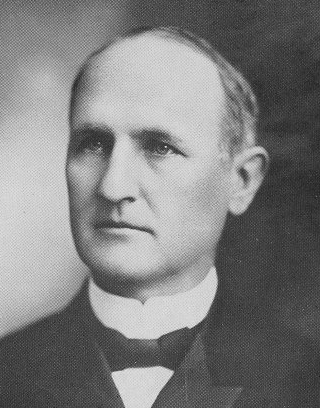
Charles B. Aycock (1859-1912), governor of North Carolina from 1901-1905, was widely hailed in his day as the state’s “education governor” due to his advocacy of education as the solution to social, economic, and political challenges facing North Carolinians in the early twentieth century. Along with universal education, Aycock called for equal opportunity for all, but understood these grand notions within the context of the “separate but equal” doctrine (Plessy vs. Ferguson, 1896) that legalized racial segregation in U. S. public facilities. Aycock’s progressive faith in the benefits of education thus found its limits in the Jim Crow mentality prevalent in much of the South, as well as in the nation at large.
Aycock was the son of a farming family in Nahunta, Wayne County. After graduating from the University of North Carolina, Aycock was licensed as an attorney in 1881. A politically active Democrat, Aycock was a spokesman, alongside Thomas J. Jarvis, for the 1898 “white supremacy” campaign that successfully took power from the Populist and Republican parties statewide. In 1900, Aycock was elected governor by a landslide after campaigning for expanded public education and a constitutional amendment requiring literacy for the franchise. The latter resulted in the disenfranchisement of most black male voters (women of both races remained disenfranchised).
As governor, Aycock oversaw a revolution in public education with the construction of over 1,000 new schools and nearly 900 libraries statewide. Considered a likely candidate for the U. S. Senate in 1912, Aycock died of a heart attack while speaking on universal education at a gathering in Birmingham, Alabama. Two years earlier, in 1910, Aycock delivered the first commencement address at East Carolina Teachers Training School, also on universal education.
In 1961, the ECU Board of Trustees honored Aycock’s educational leadership by naming a new residence after him. But like many Southern progressives of his day, Aycock had also been a proponent of white supremacy and an advocate of disenfranchisement of illiterate black males. In 2015, the ECU Board of Trustees voted to transition Aycock’s name from the residence hall to a newly created space, Heritage Hall, a learning and teaching facility wherein the university recognizes individuals who made significant contributions to East Carolina’s history.
Sources:
- Charles B. Aycock Papers. North Carolina Division of Archives and History, Raleigh.
- Connor, R. D. W. and Clarence Poe. The Life and Speeches of Charles Brantley Aycock. New York: Doubleday, Page & Company, 1912.
- Kousser, J. Morgan. “Progressivism–for Middle-Class Whites Only: North Carolina Education, 1880-1910.” Journal of Southern History (May 1980): 169-94.
- Orr, Oliver H., Jr. Charles Brantley Aycock. Chapel Hill: University of North Carolina Press, 1961.
More from Digital Collections



Citation Information
Title: Charles B. Aycock
Author: John A. Tucker, PhD
Date of Publication: 3/22/2017